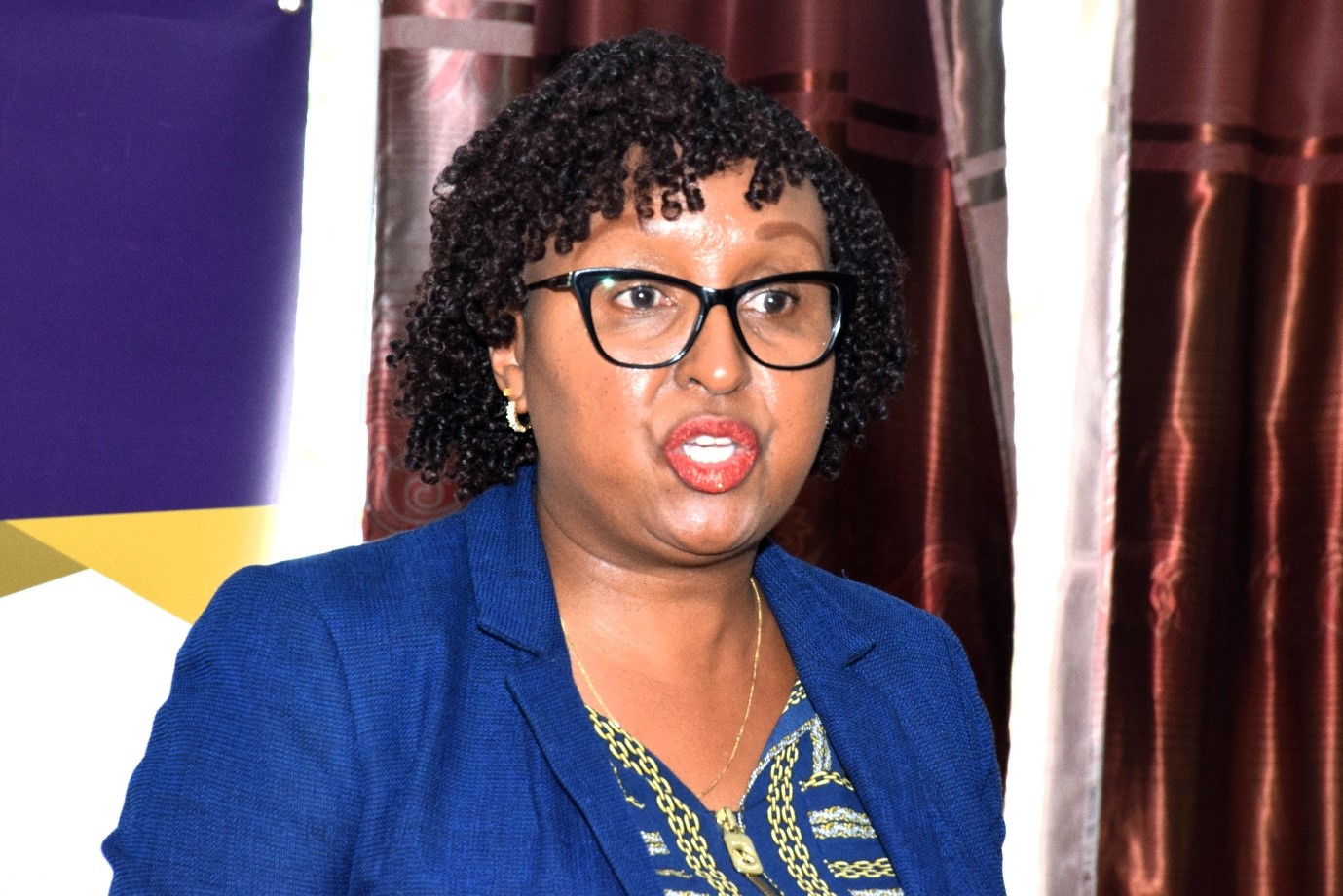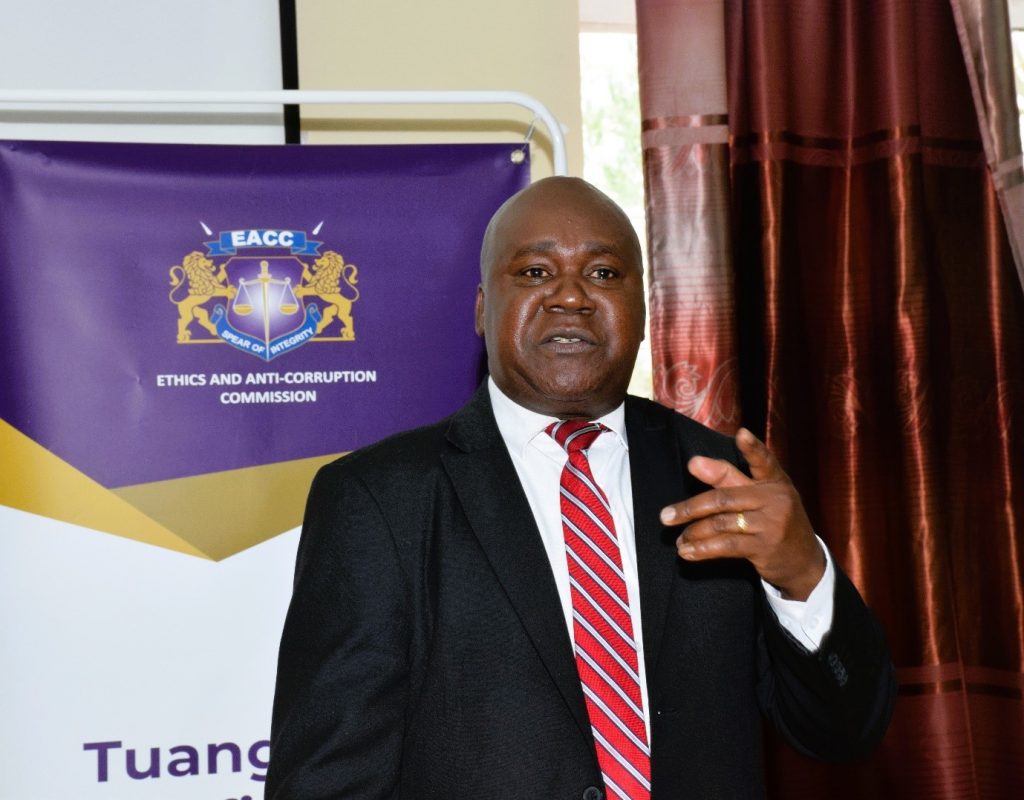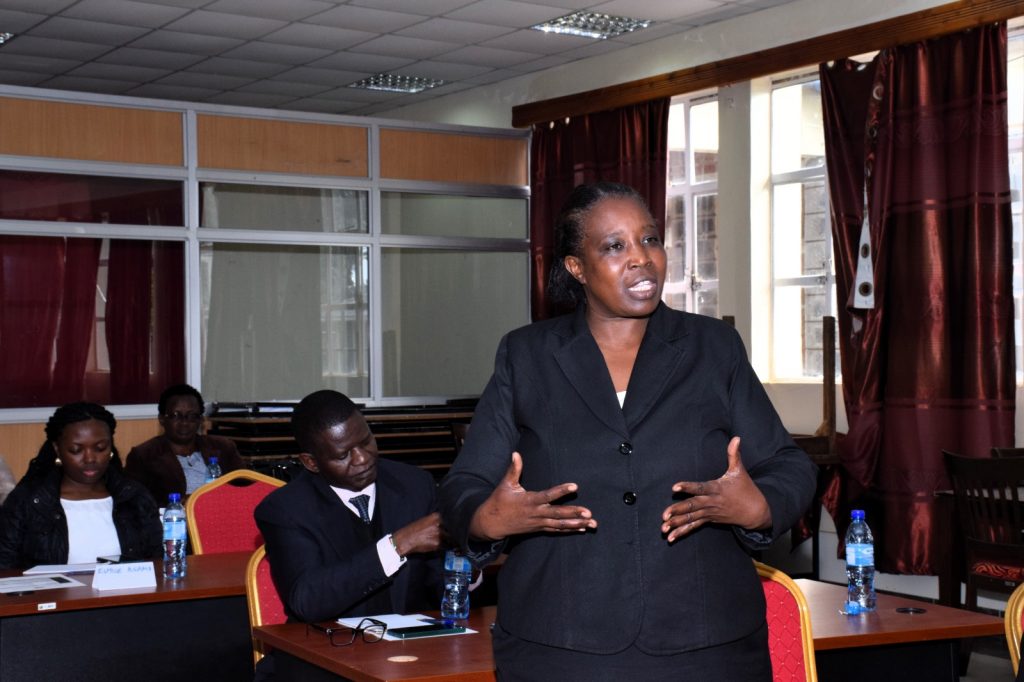Strengthening integrity in public sector records management

5:11:2024: EACC has trained over 30 records management officers across Kenya’s civil service and state corporations.
The training, officially opened by EACC’s Head of Education and Public Awareness, Dr. Emily Mworia at the Dairy Training Institute (DTI) in Naivasha, underscored the critical role that records managers play in upholding transparency and accountability, and supporting anti-corruption efforts across Kenya’s public sector.
Dr. Mworia (pictured above) emphasised the vital role of records management in combating corruption, noting that well-maintained records are essential for transparency, accountability, and efficient public service.
“Records managers are essential guardians of integrity within their institutions,” she said, highlighting the sector-wide impact of proper records management, and its role in upholding ethical practices across government functions.
She acknowledged government support in establishing Corruption Prevention Committees (CPCs) to institutionalize anti-corruption measures within both National and County Governments.
Speaking at the training, the Commission’s South Rift Regional Manager Mr Ignatious Wekesa emphasized the importance of accurate and accessible records for investigative processes.

“At EACC, our investigations heavily depend on accurate records. Poor record-keeping not only hampers operations but can jeopardize the legal process. Untampered, well-organized records are essential in supporting court cases and ensuring accountability,” he said, urging government institutions to implement standardized operating procedures for records management.
The workshop covered the EACC’s mandate to investigate corruption, develop codes of ethics, and recover corruptly acquired assets, while also educating the public on the risks of unethical practices.
Officers were trained in essential record management practices like classification, information retrieval, and preservation to bolster data integrity and accessibility within government operations. Additionally, they received guidance on implementing anti-corruption measures and integrating electronic records management to streamline processes.

Statistics from recent EACC investigations show professionals often inadvertently facilitate corruption. Previous EACC initiatives with various professional bodies have, however, led to notable improvements in ethical conduct.
To further support anti-corruption goals, the EACC encouraged attendees to collaborate on corruption risk assessments, update institutional codes of conduct, and implement internal integrity programs. Records Management Officers were urged to uphold high standards of ethics, avoid conflicts of interest, and serve the public impartially.
The Commission reiterated its commitment to developing governance tools and policies to prevent corruption.
The training is a pioneering step in EACC’s ongoing mission to combat corruption through robust records management. The Commission plans to extend similar training programs to records managers across all public institutions.

